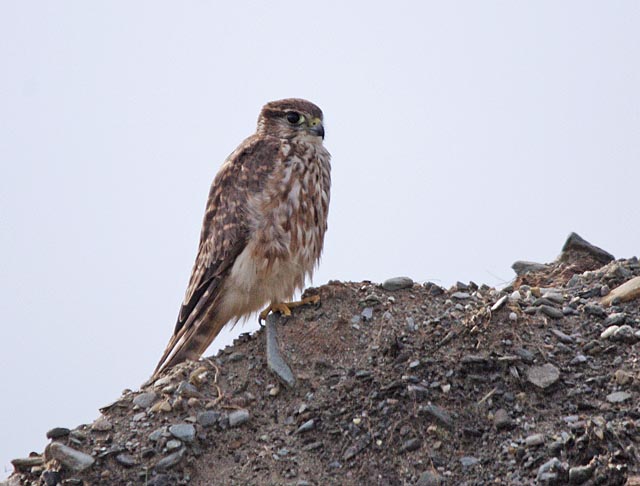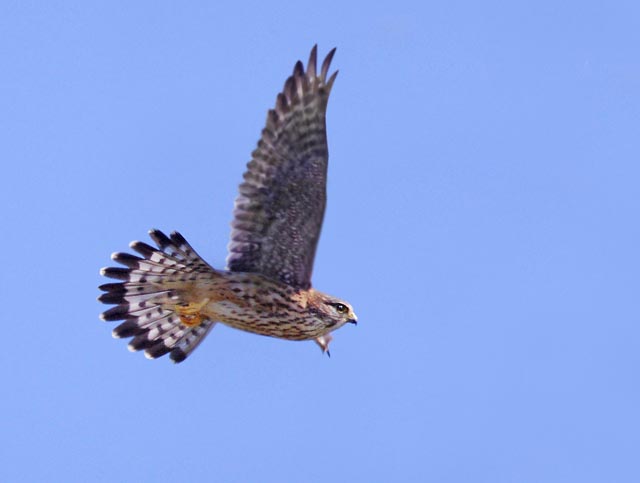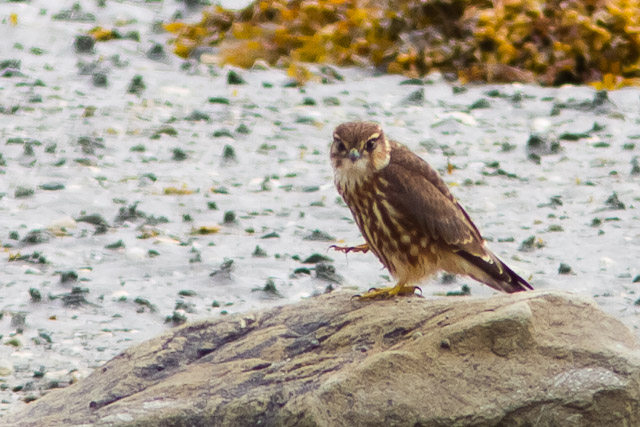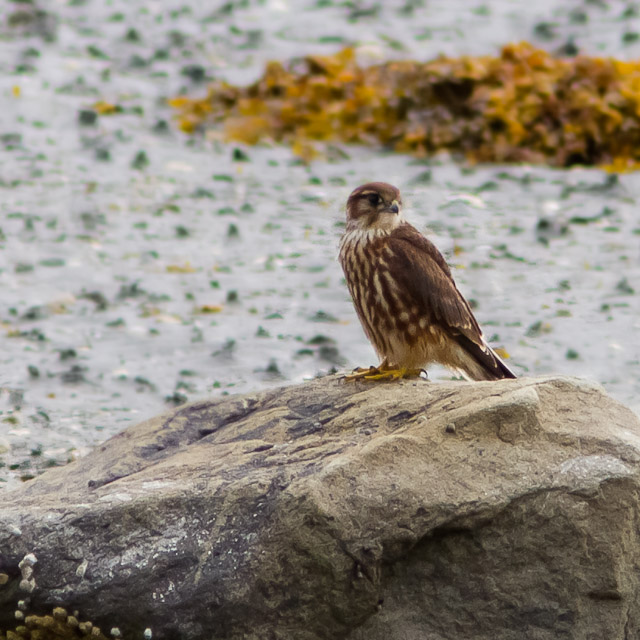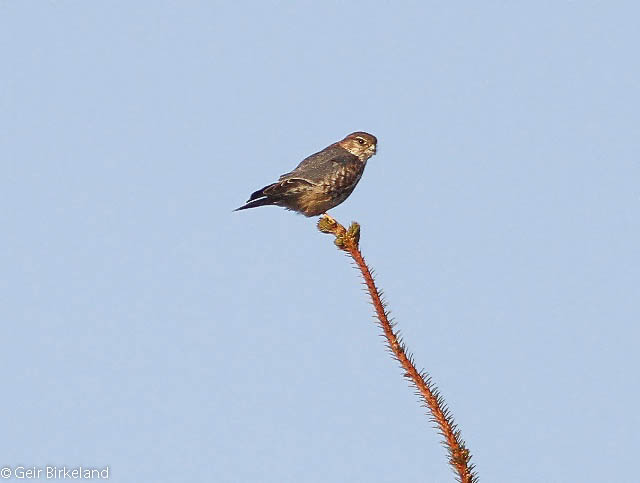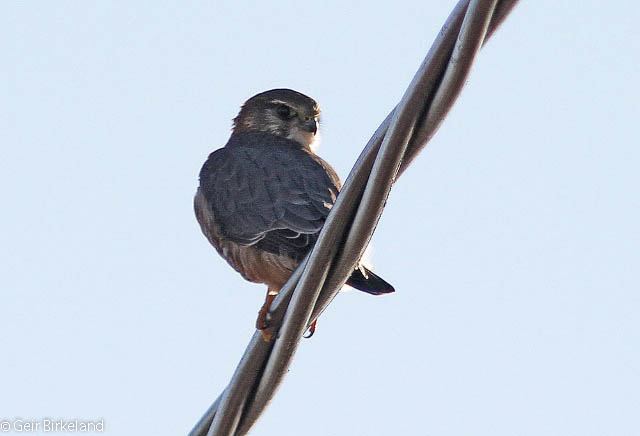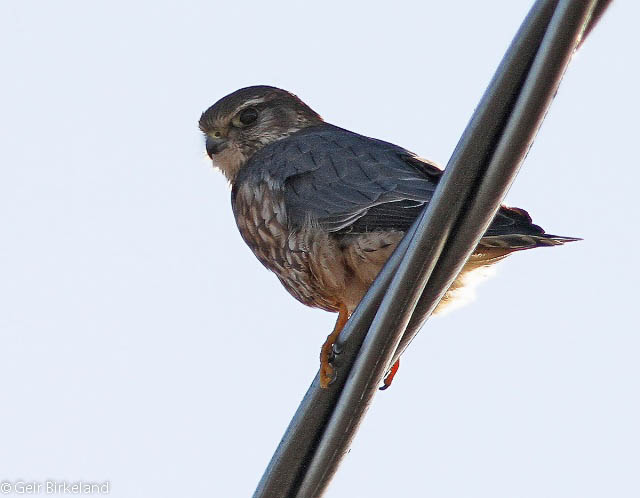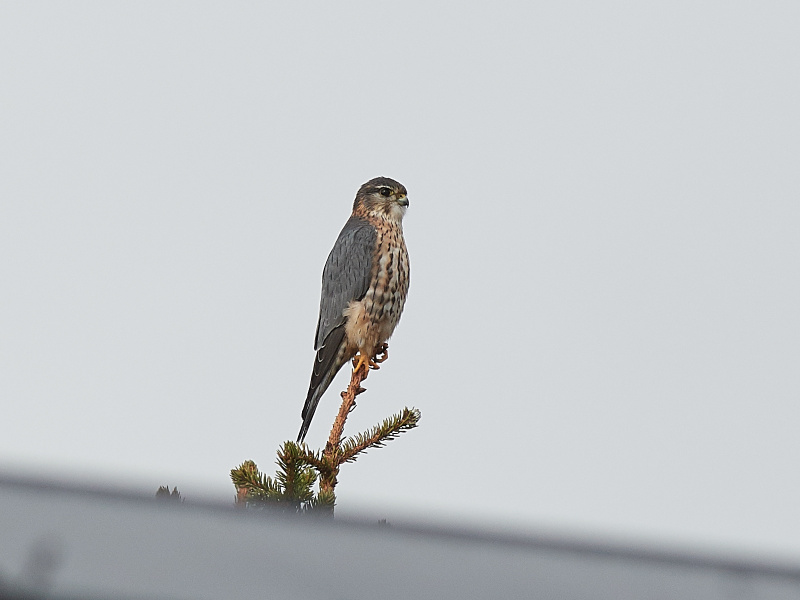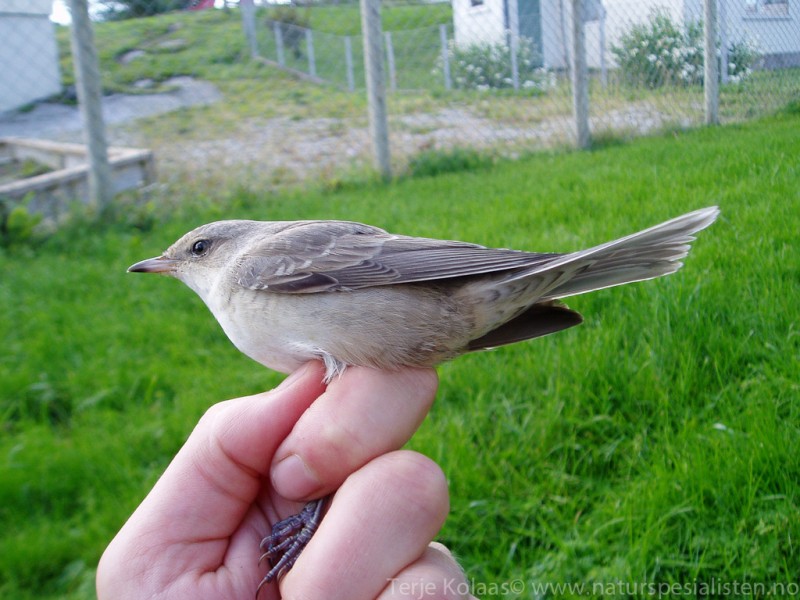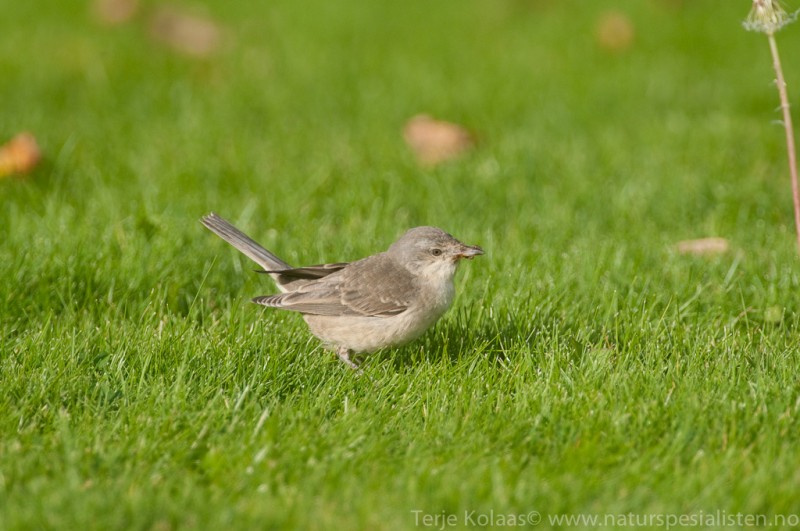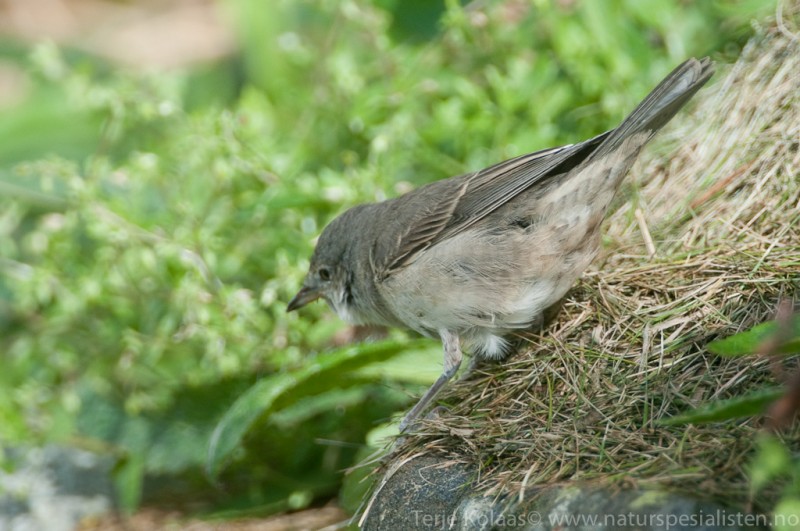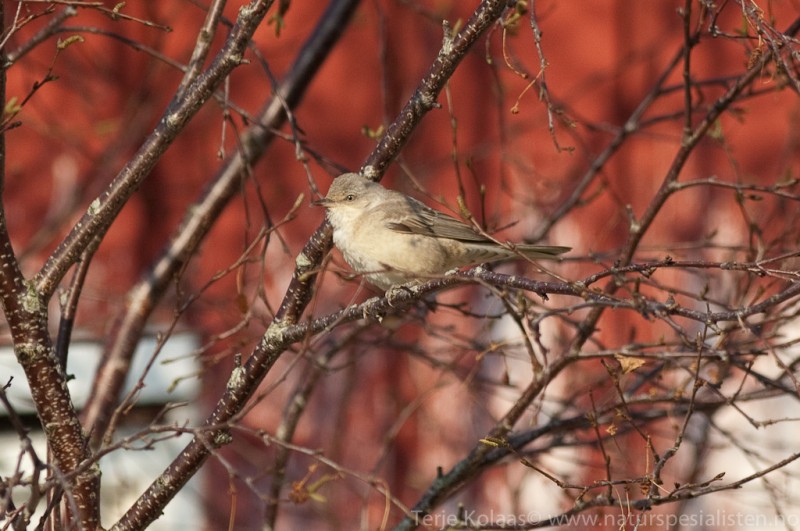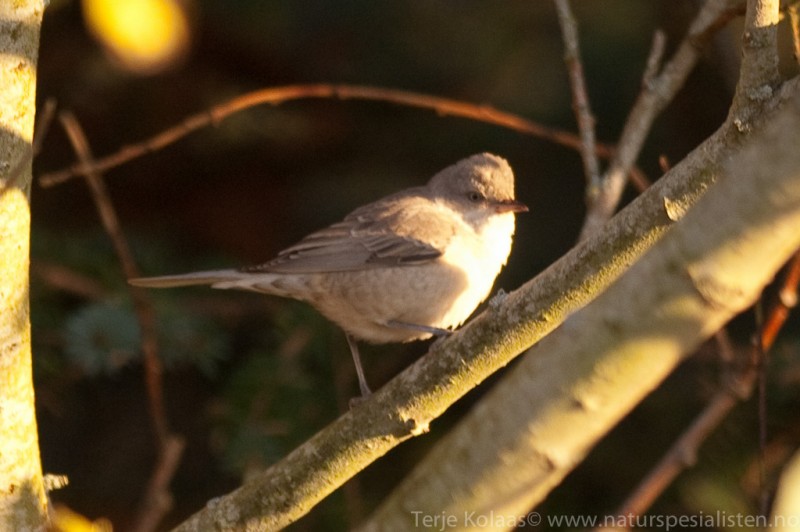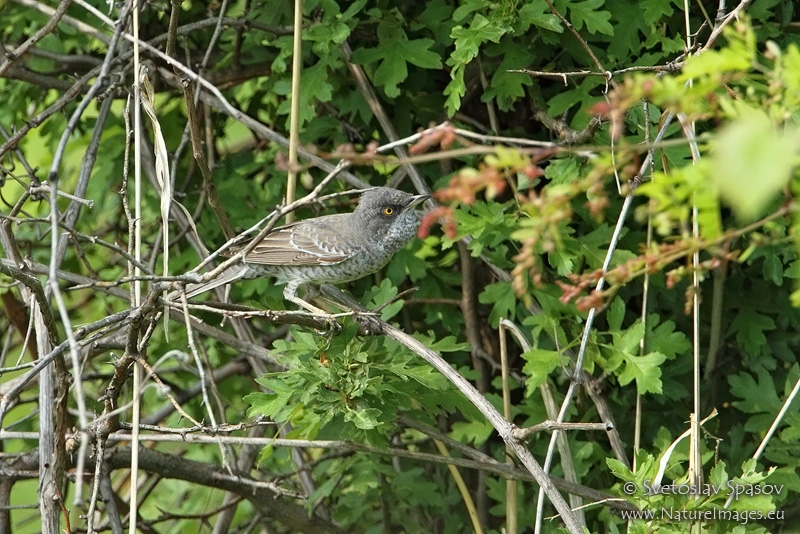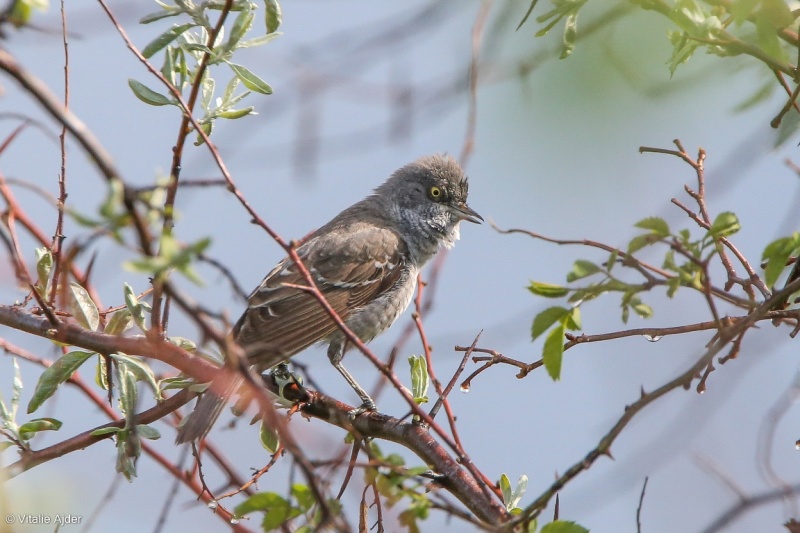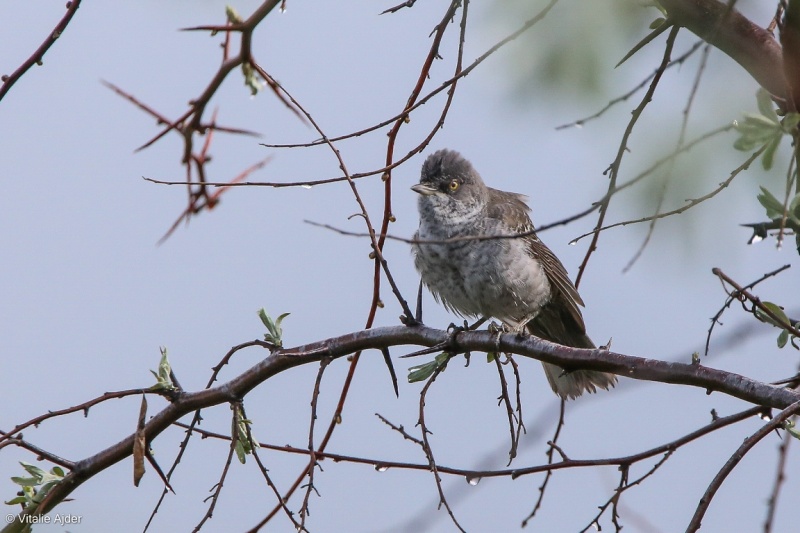Merlin (Falco columbarius)
Barred Warbler (Curruca nisoria)
Smallest falcon. Male with slate grey upperparts, and pinkish buff, speckled underparts . Female dark brown above and heavily speckled below. Due to the extensive markings, the underparts give a darker impression than in Kestrel. Tail of female with dark broad bands, tail of male with broad black terminal band. Diffuse facial markings. Short wings. Silhouette similar to Peregrine, but the much faster wing beats are diagnostic. Acrobatic flight with sharp twist and turns when chasing prey. Alternating glides and bursts of wing-beats gives undulating flight.
Sound:Series of harsh "kwik-wik wik". Coarseness similar to Peregrine, but pace much quicker. Female call harsher than male. Lacking the clearer tones and attack of Kestrel.
Alarm call:
Distribution:
Wikipedia: map (se also Xeno-canto below)
Ecology:Birdlife ecology
Links:
Observation.org Latest observations
Image search Flickr NB! May give other species
CCLarge and bulky Sylvia-warbler, with grey upperparts, and white to cream underparts. Adult males easily distinguished at close range, by barred underparts and yellow iris. Eye darker in females and young males. Pale, or white fringes to coverts and tertials evident in most plumages, but may be faint in young birds. Tail-corners white, and under tail-coverts always spotted. Most plumage characters difficult to see at a distance, and the general bulky and long-tailed impression of the bird, together with the white tail-corners seen in flight, are more useful for ID. Sometimes resembles more a shrike than a warbler, especially in flight.
Sound:Varied repertoire, but mostly silent when not breeding. Contact call a rolling, dry "trrrrrrrrr-r-r-t, often with ritardando ending, of 1-2 seconds length. Also a Blackcap-like "check". Song varies among individuals and location, but is generally quite similar to Garden Warbler. Often contains mimicry of Red-backed Shrike, and other species. Phrases usually quite short, with rapid alternations between sequences of squeaky, high-pitched sounds and warbling, fluty (often disyllabic) notes. This creates a slightly bouncing rhythm, different from Garden Warbler. Sometimes includes contact call in song, which makes ID easier.
Contact call/song:
Distribution:
Xeno-canto: map
Ecology:Birdlife ecology
Links:
Observation.org Latest observations
Image search Flickr NB! May give other species
CC
 English
English Albanian
Albanian
 Armenian
Armenian
 Bulgarian
Bulgarian
 Catalan
Catalan
 Croatian
Croatian
 Czech
Czech
 Danish
Danish
 Dutch
Dutch
 Finnish
Finnish
 French
French
 Georgian
Georgian
 German
German
 Greek
Greek
 Hungarian
Hungarian
 Italian
Italian
 Latvian
Latvian
 Lithuanian
Lithuanian
 Macedonian
Macedonian
 Norwegian
Norwegian
 Polish
Polish
 Portuguese
Portuguese
 Romanian
Romanian
 Russian
Russian
 Sami : Lule sami
Sami : Lule sami
 Sami : North sami
Sami : North sami
 Sami : South sami
Sami : South sami
 Scientific names
Scientific names
 Serbian
Serbian
 Spanish
Spanish
 Swedish
Swedish
 Ukrainian
Ukrainian


